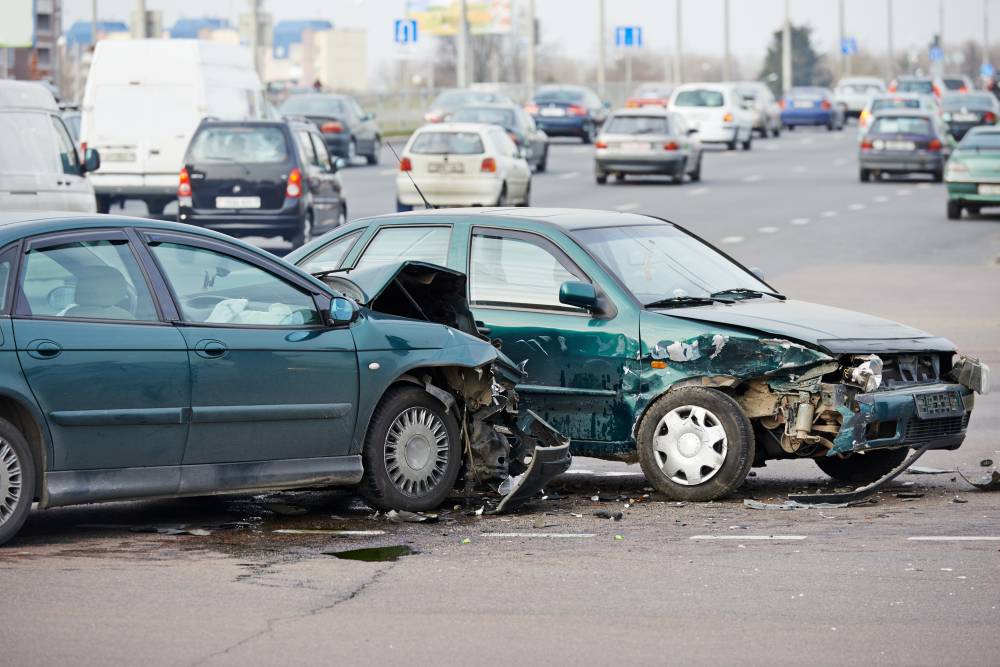Some types of damages are obvious, like property damage to your car or your medical expenses. But, what other types of damages are you entitled to after a car wreck? If you aren’t sure what they are required to pay, you may be “leaving money on the table” or allowing the insurance adjuster to take advantage of your inexperience.
Your Myrtle Beach car accident lawyer at Coastal Law will investigate your case, gather the evidence that you will need to prove damages, help you to retain the experts that you need, and help you to understand which categories of damages apply in your case and how much the insurance company must pay.
Where do Damages Laws Come From?
The law of damages in the United States was adopted from English common law although it has evolved and changed since the earliest days of the Republic.
The concept of damages has been around for thousands of years. For example, Exodus 21:18-19 provides that a person who commits an assault must pay the victim for the time that they have lost and ensure that they are healed:
If people quarrel and one person hits another with a stone or with their fist and the victim does not die but is confined to bed, the one who struck the blow will not be held liable if the other can get up and walk around outside with a staff; however, the guilty party must pay the injured person for any loss of time and see that the victim is completely healed.
Later, in Fifth-Century Great Britain, the Saxons assigned a value to every person’s life and every piece of property, called the “Weregild,” that must be paid as restitution by any person who kills, injures, or steals from another person.
Although the law of damages has changed, evolved, and become more complicated over time, the concept is the same: If you hurt someone else or cause a financial loss, you are responsible for paying for it.
Compensatory Damages or Actual Damages
There are several categories of damages in South Carolina law, and it can be confusing. It doesn’t help that some categories of damages have more than one name – like compensatory or actual damages.
Compensatory damages are intended to “make the plaintiff whole.” Of course, in a car accident lawsuit for damages, the only thing that the other driver can give you is money. Although it is impossible to truly put a person in the position that they were in before the accident happened, we can put a dollar value on it that allows us to come as close as possible.
There are two types of compensatory damages in South Carolina – economic damages (special damages) and non-economic damages (general damages).
Economic Damages or Special Damages
Economic damages are your “tangible” financial losses that can be proven with a receipt, an invoice, or a bill. Some common examples of economic damages include:
- Medical expenses: your bills from the emergency room, ambulance service, doctor visits, and pharmacies;
- Future medical expenses: what our experts determine will be the cost for medical care throughout the rest of your life, to provide you with the care that is needed to come as close as possible to “making you whole;”
- Property damage: the damage to your vehicle, home, or any other personal property;
- Rehabilitation: the costs of any physical rehabilitation;
- Long-term care: the cost of any long-term care that is required because of your injuries;
- Lost wages or lost income: if you were forced to miss work because of the accident, the other driver must compensate you for the pay that you lost;
- Lost future income or reduction in earning capacity: if you cannot return to work, or if you must take a lower-paying job because of the accident, our experts can determine what that will cost you over your lifetime; and
- Burial expenses and funeral costs.
Non-Economic Damages or General Damages
Non-economic damages are designed to compensate you for the non-financial losses that you suffered because of the accident – the losses that you can’t produce a receipt or a bill for.
Some common examples of non-economic damages include:
- Pain and Suffering;
- Mental anguish;
- Emotional distress;
- Loss of society and companionship;
- Loss of consortium;
- Physical impairment;
- Disfigurement;
- Injury to reputation;
- Humiliation; and
- Any other non-pecuniary damages, or damages that can’t be quantified with an invoice.
Punitive Damages in Car Accident Cases in SC
Punitive damages are not intended to compensate the person who was hurt. They are intended to punish the other driver and to make sure that it does not happen again…
When Can I Get Punitive Damages in a Car Accident Case?
In South Carolina, you must prove by clear and convincing evidence that the other driver’s conduct was willful, wanton, or reckless. If you can prove that the other driver’s conduct was intentional or grossly negligent, jurors can award punitive damages.
Are There Caps on Punitive Damages in SC?
Punitive damages are capped at three times the amount of the compensatory damages (including economic and non-economic damages) or $500,000 for most cases.
If the other driver was drunk (or high) at the time of the accident, or if they committed a felony that was related to the accident (felony DUI or reckless homicide, for example), there is no cap on punitive damages in SC.
Other exceptions to the cap on punitive damages can be found in SC Code Section 15-32-530.
Car Accident Lawyers in Myrtle Beach, SC
If you have been hurt in a car accident in the Myrtle Beach area, don’t leave money on the table – know what you are entitled to after a car wreck and get an experienced SC car accident attorney on your side as soon as possible.
Call now at (843) 488-5000 or send us a message online to talk with a Myrtle Beach car accident attorney today.


